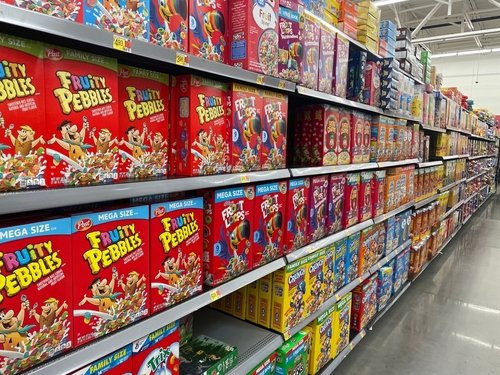
General Mills is under renewed scrutiny as consumer advocacy groups urge the company to remove hazardous plastic chemicals from its food products. A petition with over 30,000 signatures was delivered to the company's headquarters in Golden Valley, Minnesota, demanding immediate action to address the presence of plasticizers in their foods.
The chemicals in question are phthalates, used to make plastics more flexible and resilient. These substances have been linked to various health issues, including hormonal disruptions, diabetes, cardiovascular diseases, and certain cancers.
Stop buying their products
General Mills facing revived push to cut plastic chemicals in food https://t.co/02GaocX698
— Dawn Wildman (@WildmanDawn) June 5, 2024
Studies have shown that even low-level exposure to phthalates over time can pose significant health risks.
Consumer Reports recently tested 85 different food products and found alarming levels of phthalates in several items from General Mills, particularly Annie's Organic Cheesy Ravioli, which had the highest concentration of these chemicals. Other products affected include Yoplait yogurt, Cheerios cereal, Green Giant vegetables, and Progresso soups.
Yesterday Consumer Reports was joined by members and local groups to hand-deliver over 35,000 petition signatures to General Mills headquarters near Minneapolis, MN, calling on the company to address the problem of plastic chemicals, called phthalates, in their food products. pic.twitter.com/CQHFAtACse
— Consumer Reports Advocacy (@CRAdvocacy) May 31, 2024
Brian Ronholm, Director of Food Policy for Consumer Reports, emphasized the need for General Mills to identify and eliminate the sources of these chemicals, which could originate from packaging materials or production processes involving plastic equipment and conveyor belts.
In response, General Mills has maintained that all its products meet current regulatory standards and that the company regularly reviews its ingredients and suppliers to ensure safety and quality. However, consumer advocates argue that existing safety limits are outdated and insufficient to protect public health.
The pressure on General Mills to act comes amid broader concerns about plastic pollution and its impact on human health. Advocacy groups are calling for stricter regulations and better transparency from food manufacturers to prevent such contamination.
As the debate continues, consumers are advised to minimize their exposure to plasticizers by using alternatives like glass storage containers and avoiding plastic packaging whenever possible. This issue highlights the ongoing challenges in balancing industrial convenience with consumer health and safety .










